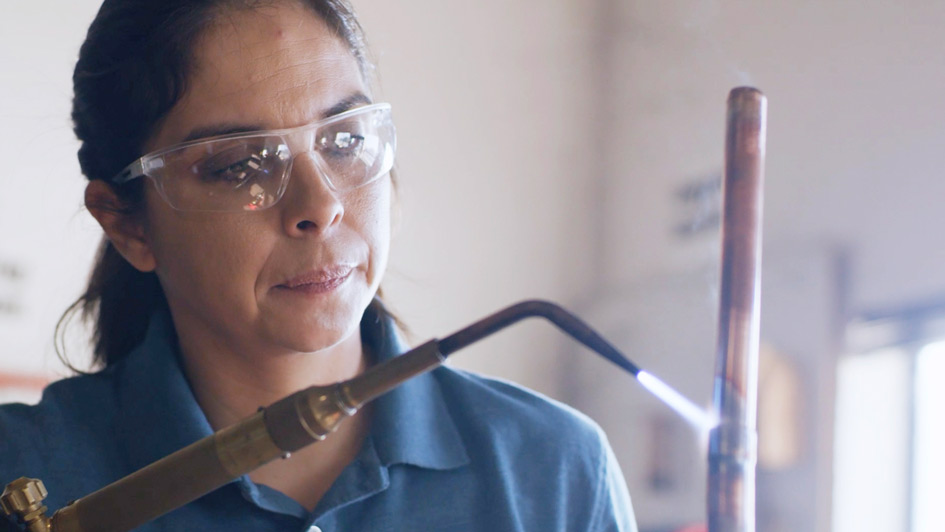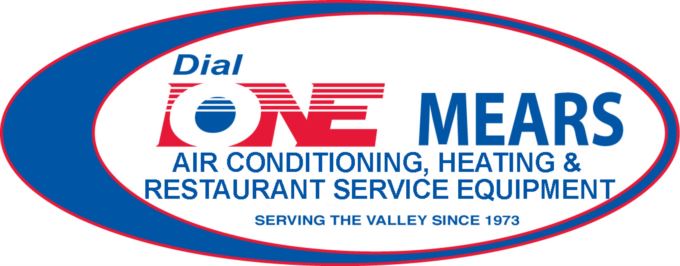
When you’re looking for quality HVAC services, you likely want a technician that knows what they’re doing. Lots of service companies advertise experienced staff, but how can you know for sure? One of the easiest ways to confirm if an HVAC technician is knowledgeable is by checking their certifications. HVAC certifications should demonstrate proficiency in services like air conditioning repair, installation and maintenance services as well as other central aspects of the industry.
There are a variety of HVAC certifications available. Some concentrate on a core body of knowledge professionals should possess, while others are a result of industry standards for energy efficiency and sustainability. We’ll compare key details about a few of the most common HVAC certifications you’ll find in your search for services.
Certification from NATE
The North American Technician Excellence certification is the largest program for HVAC proficiency, with tens of thousands of certified technicians. Other organizations like the ACCA and the federal Environmental Protection Agency cooperate with the NATE program to standardize the certification tests. To pass, applicants must meet a minimum score of 70%. To maintain NATE certification, technicians must receive continuing education or take another exam every two years.
Complete certification is a multiyear process made up of four separate tests. The first two are designed for entry-level technicians while the final set of exams provide full certification along with senior-level status:
- Ready-to-Work Certificate – This certificate offers core knowledge and skill sets that can reaffirm any education or training already completed. The Ready-to-Work certification is particularly beneficial for recent graduates of trade programs.
- HVAC Support Technician Certificate – After 6 to 12 months of experience, this exam is offered to teach fundamental topics relevant to full NATE certification.
- Core and Specialty Certification – Once a technician has been in service for two or more years, they can receive NATE certification. Technicians will need to pass both the core exam as well as a specialty exam for installation or servicing specific kinds of HVAC systems.
- Senior-Level Efficiency Analyst Certification – Senior status is the highest NATE certification offered. Technicians have to be certified in two specialty services—one in heating and the other in air conditioning—to be eligible to apply for the senior certificate.
Certification from ASHRAE
The American Society of Heating, Refrigerating and Air Conditioning Engineers was created in 1894. ASHRAE and its members share research and education about HVAC systems with the intent to encourage sustainability, energy efficiency and healthy indoor air quality. Through their work, ASHRAE creates industry standards with federal recognition. These standards are applicable not only to HVAC equipment, but to the buildings themselves as well as their other systems.
Many of ASHRAE standards are concerned with commercial properties and industrial facilities, as they typically have the highest rates of energy use. They’ll determine how HVAC system design can be improved as well as how equipment should be installed and serviced. ASHRAE also researches how the engineering and architectural design of the building itself influences energy use.
ACCA Certification
Another nationwide HVAC accreditation organization, the ACCA stands for Air Conditioning Contractors of America. This organization encourages rigorous training and offers sessions for technicians to attend both on-site and online. Contractors looking for accreditation have two programs to select from:
- The Existing Homes Program for Residential Service and Installation (RSI): This track ensures technicians can install, replace and maintain HVAC equipment common in residential properties like homes and apartments.
- The New Homes Program: The New Homes track specializes in designing and installing HVAC systems with ENERGY STAR®-certified equipment for qualifying homes. Random audits are completed to make sure members maintain their proficiency.
ICE
Industry Competency Exams are offered by NATE to make sure technicians meet industry standards for entry-level (one year or less) experience. These are separate from the NATE certification exams but encompass similar topics. Testing is offered for residential HVAC equipment as well as light commercial heating and cooling. Separate tests are also available for commercial refrigeration.
To be ICE-certified for residential equipment, technicians will need to pass both a core exam as well as specialty sections for services like furnace installation, service or even knowledge of components. Commercial ICE certifications don’t include the core exam and will cover all relevant knowledge rather than specialty sections.
Certification Through the EPA
The Environmental Protection Agency provides comprehensive regulations for the HVAC industry. One of the most well-known sets of regulations is the federal Clean Air Act. Under Section 608 of the Clean Air Act, the EPA requires technicians who handle equipment capable of releasing refrigerants to pass a certification test. To earn the Section 608 Technician Certification, the test will be specific to the products the technician works with and administered by an approved organization.
HVAC Excellence
The HVAC Excellence Certifications of Achievement encompass a broad range of competency tests for different levels of proficiency in the HVAC industry. For example, the Heating, Electrical, Air Conditioning Technology (H.E.A.T.) + student outcome assessments are offered for high school students who have completed qualifying HVAC education programs. Other testing is available for those seeking employment as well as for experienced technicians seeking Professional or Master Specialist accreditation.
Why You Want Certified HVAC Professionals
When you receive service from technicians who are certified by organizations like NATE, ASHRAE and the ACCA, you’re giving your HVAC system a better standard of service. Benefits of choosing certified HVAC technicians include:
Demonstrates proficiency and dedication: Technicians who are committed to their customers’ sense of comfort will seek out certifications to demonstrate their expertise. When you see a service company in Phoenix offering NATE- or ICE-certified staff, you’ll know they go the extra mile to improve their services such as air conditioning installation.
Can help lower costs and speed up services: Technicians who spend the time and resources necessary for these certifications often use less time and fewer resources when servicing your equipment. Not only can things like furnace repair, maintenance and installation proceed more quickly, but the faster progress can also lower labor expenses.
If you’re looking for certified HVAC services in Phoenix, consider requesting an appointment with Dial One Mears Air Conditioning & Heating Inc. Get in touch by giving us a call at 602-584-2884 today.
